Man says police response to his seizure put him in the hospital, then in jail
Man says police response to his seizure put him in the hospital, then in jail
Man says police response to his seizure put him in the hospital, then in jail
RACINE -- A man says Racine police beat him while he was having a seizure, then charged him with assaulting an officer.
Racine police say the officer made a split-second decision to protect himself. Advocates for seizure patients are pushing to reform how the criminal justice system treats people who have medical conditions.
"Times when I wanted to give up"
Tyran Pinkins says he still has no memory of the situation that put him in the hospital on Oct. 6, 2016.
"I woke up...with my eye severely beaten closed," Pinkins said. "The doctor told me that I had a seizure."
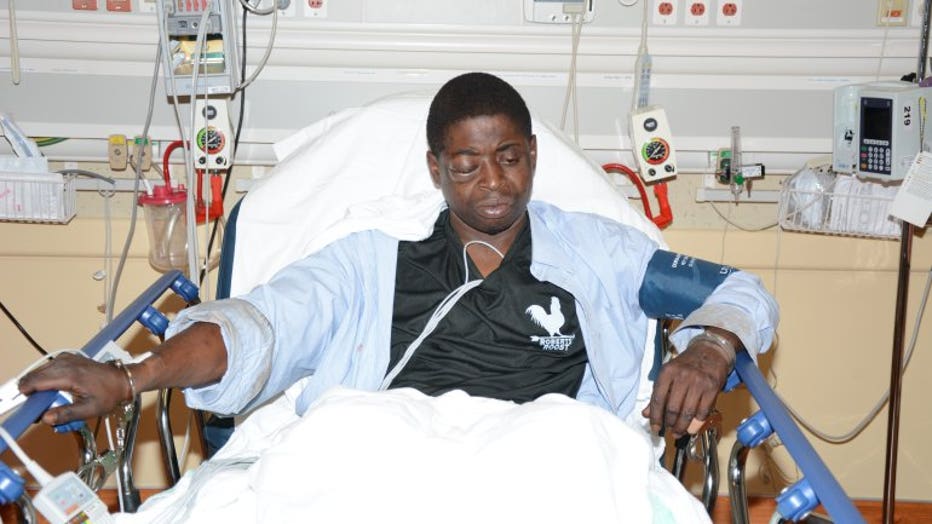
Pinkins says he had seizures in the past, but could not afford medication because he was homeless at the time.
Pinkins provided FOX6 with paperwork from Wheaton Franciscan Healthcare that says he was admitted that night "after having a seizure on the side of the road," refused further treatment, and was released into police custody.
Court documents show Pinkins was charged with battery to a law enforcement officer, attempting to disarm a peace officer, resisting an officer, and disorderly conduct.
It was more than six months before Pinkins could post bail.
"There was times when I wanted to give up, times when I didn't know...what was next," Pinkins said.
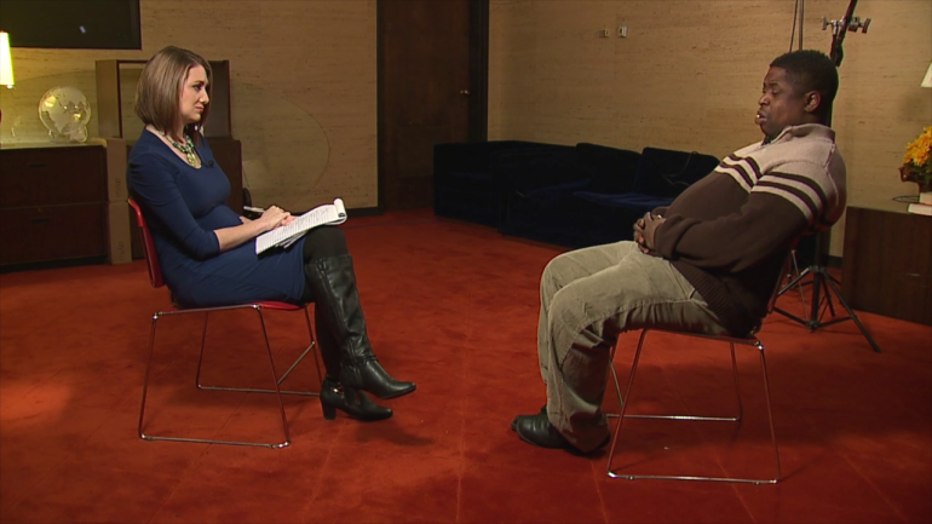
The case went on for almost two years before the charges were dismissed.
"At that moment, I knew God was real," Pinkins said. "Like, my heart dropped, my blood, everything got to pumping. And I couldn't do nothing but drop my head and cry."
But Pinkins says he did not have a clear picture of what happened on Oct. 6, 2016 until he got a hold of the police footage when the charges were dropped.
"Stop resisting! Stop resisting!"
The FOX6 Investigators obtained dashcam footage, court testimony, charging documents, police reports, pictures, and medical documents from Pinkins, Racine police, and the circuit court system.
Both Pinkins and Racine police provided copies of the dashcam footage; they appear to be identical.
Racine Police Dashcam Raw #1 (Credit: Racine Police Department)
Racine Police Dashcam Raw #1 (Credit: Racine Police Department)
Racine Police Dashcam Raw #2 (Credit: Racine Police Department)
Racine Police Dashcam Raw #2 (Credit: Racine Police Department)
Court records say Racine Police Officer Joshua Diederich was on duty and driving near State Street and Lake Avenue when someone flagged him down, saying a man was laying on the grass.
Video shows Diederich's car pulling up to two men - one on the ground, and the other standing.
"Send a rescue," Diederich said as he called the situation in. "I think he might be having a seizure."
The man on the ground was later identified as Tyran Pinkins. When Diederich testified in court, he described Pinkins as "on the ground shaking" with what he "believed to be" a seizure.
Diederich said Pinkins eventually opened his eyes. Dashcam footage shows Pinkins standing up and appearing to stumble. Diederich repeatedly asked Pinkins questions like, "Are you alright?" Pinkins did not respond and continued to attempt to walk away.
Diederich later testified that Pinkins was "staring through" him.
"Can you have him sit down?" Diederich asked the other man at the scene. "Because I don't want to fight him." Pinkins did not respond to Diederich's requests to sit down and wait for medical assistance.
"Does he talk at all?" Diederich asked. "What is going on with him? Does he speak?"
The video shows Diederich grabbing Pinkins near the intersection; Diederich later testified that he was trying to stop Pinkins from wandering into traffic. Pinkins fell to the ground, and a struggle ensued.
"Stop resisting!" Diederich yelled as he was on top of Pinkins. "Stop resisting!"
Eventually, an employee at a local pub ran out and helped Diederich restrain Pinkins; the employee told Diederich it looked like Pinkins was "going for" his gun. The dashcam footage shows more police arriving at the scene.
Diederich went to the hospital with cuts on his hands and knees; he also said Pinkins hit him in the face.
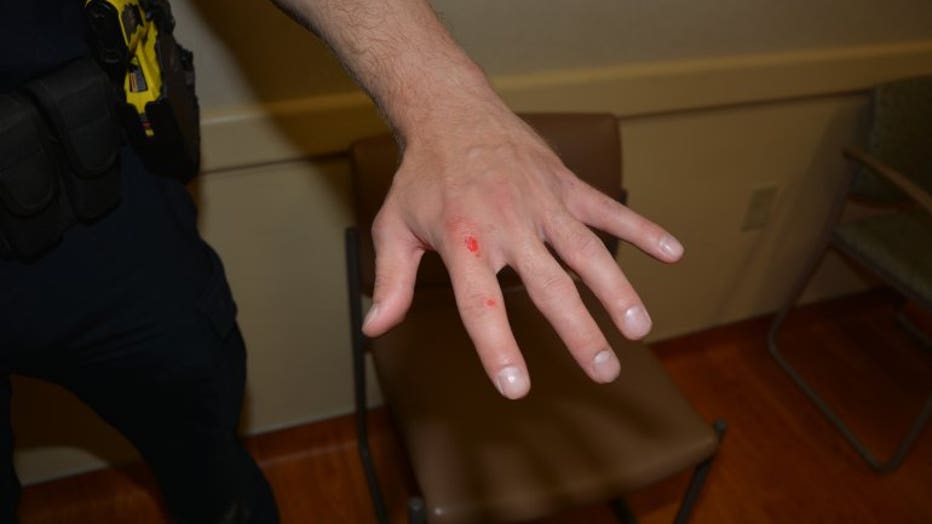

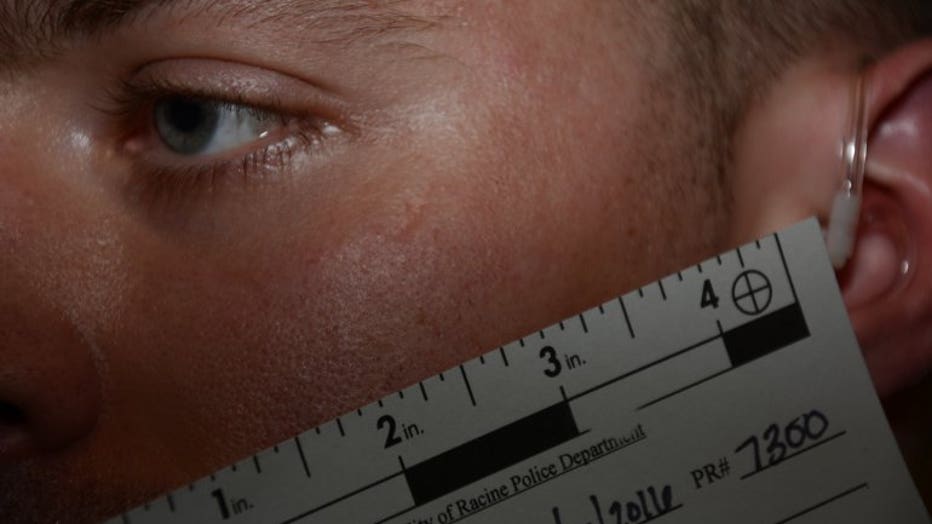
Pinkins also went to the hospital, where he says he woke up with his eye swollen shut.
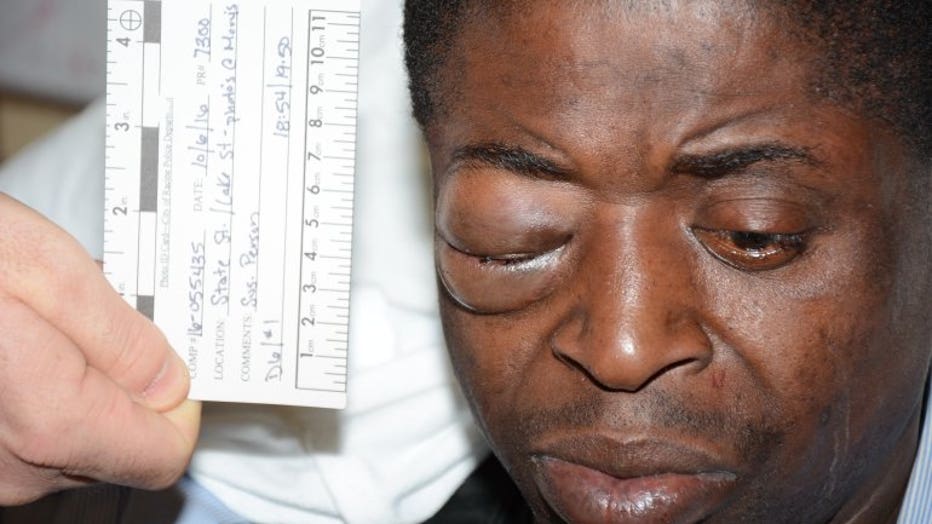
"He's got puke and blood on him," one officer observed on the dashcam video, referring to Pinkins.
A push for reform
"The vomit was probably from the seizure," retired Epilepsy Foundation Heart of Wisconsin Executive Director Art Taggart said after watching the Racine police footage. "The blood was probably from the police response."
Taggart has spent decades advocating for people who have seizures. He says Pinkins' behavior in the dashcam video is not unusual for someone who is having a seizure, or whose brain is recovering from a seizure.
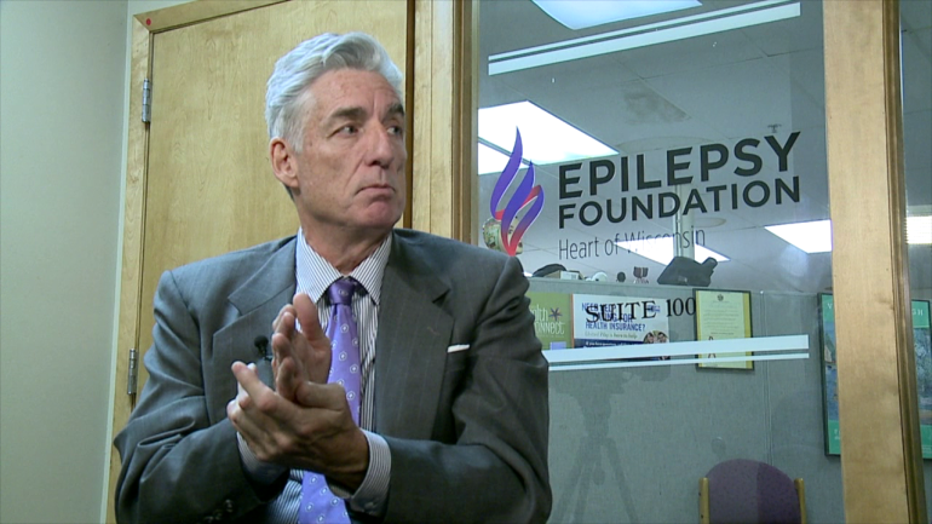
Each case is different, but neurologists say some patients do become combative - especially when restrained. The person may appear to be conscious, but is also likely to be confused and unable to follow instructions or respond to questions.
"Often, speech is the last thing to return when you recover from a seizure," Taggart said.
Click here, here, and here for more research about certain types of seizures and symptoms patients may display; the Epilepsy Foundation divides seizures into six different categories and spends time discussing public understanding of seizure behaviors.
"That person is not aware of who you are, or what your purpose is, or that you're a police officer," Taggart said.
Taggart gave the FOX6 Investigators 2004 police footage from Dane County showing a man pulled over and unable to answer simple questions or recall events that had just happened; Taggart says the man had just had a seizure, but was charged with OWI. It took more than one year to resolve the case.
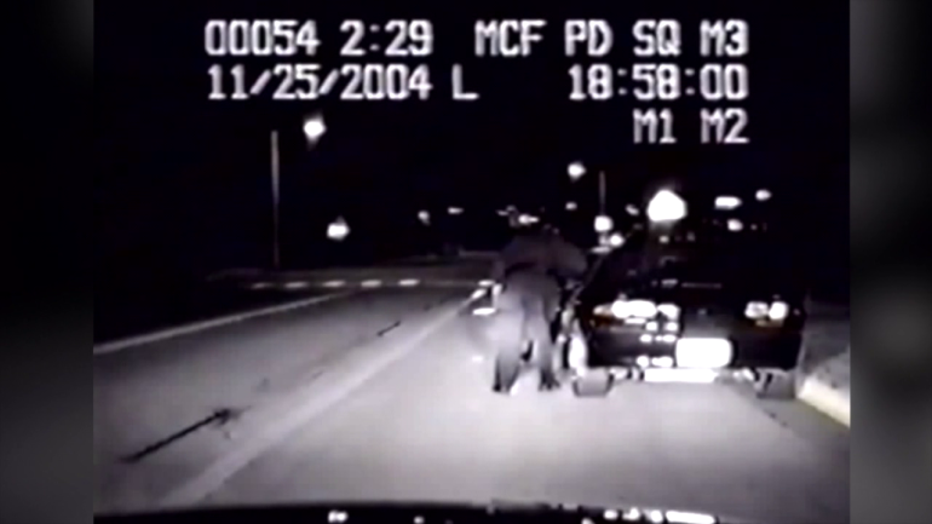
"It's as if a tape recorder has stopped and there's not even any tape going through the recorder," Taggart said. "So the person doesn't even realize there's a gap in his memory."
Once charges are filed, Taggart says his experience is that it takes a long time to get the case dropped. The situation gets more complicated when the person who had the seizure has had previous run-ins with police -- like Tyran Pinkins, who has a record that includes a 2012 felony conviction of discharging bodily fluids at a public safety worker.
"It's very difficult sometimes to move that needle," Taggart said.
The consequences of misunderstood seizure symptoms can be much worse than criminal charges; Taggart points to news coverage from 2000, when a Wisconsin man died as police restrained him while he was having a seizure.
"Clearly when incidents like this happen, it underscores the need for that kind of training," Taggart said.
The Epilepsy Foundation has locations in several parts of the country, including Milwaukee, that train police, medical personnel, and other first responders to recognize seizures and adjust their responses. Taggart says he'd like to see every police officer undergo at least three hours of seizure training, saying it could have changed the struggle between Tyran Pinkins and Joshua Diederich.
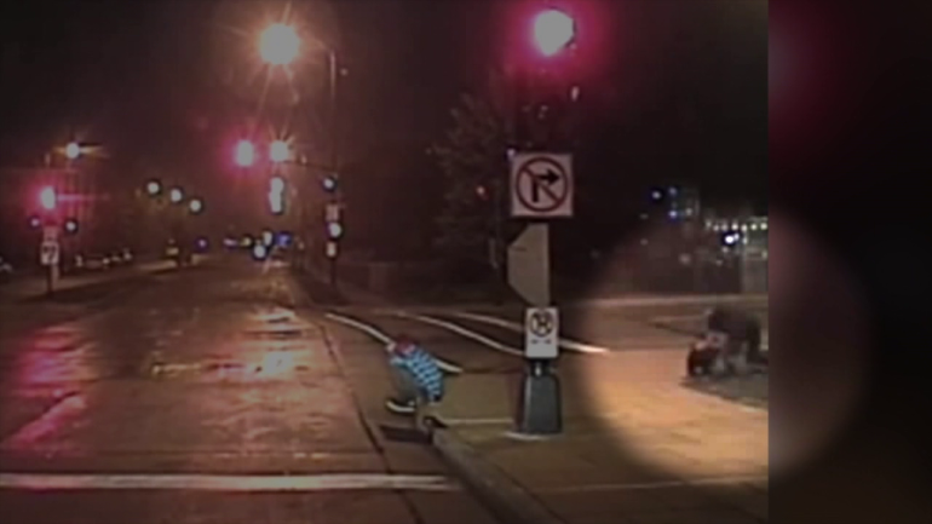
"Immediately the policeman recognized that it was probably a seizure happening," Taggart said. "And that’s great...an appropriate response is not to escalate the situation, to be calm, and quiet, and begin to ask your questions: 'Do you know where you are? Do you know what happened?' And when that person can’t respond, that’s your clue that that seizure, that episode is not finished yet."
"Any type of restraint is to be avoided," Taggart added. "Because the person having that seizure is not going to be able to respond to that restraint appropriately...it would have been better for that officer to go out of field of vision. And if he's going to wander out into that street past the stop and go lights, gently take him by the shoulders and just turn him in another direction. Because he'll just veer in that new direction."
Split-seconddecisions
Racine police say analyzing a video after the fact is one thing; making a decision in the moment is a different story.
"Being a police officer, you're faced with split-second decisions," Public Information Sgt. Adam Malacara said.
"But there's always room for improvement," he added.
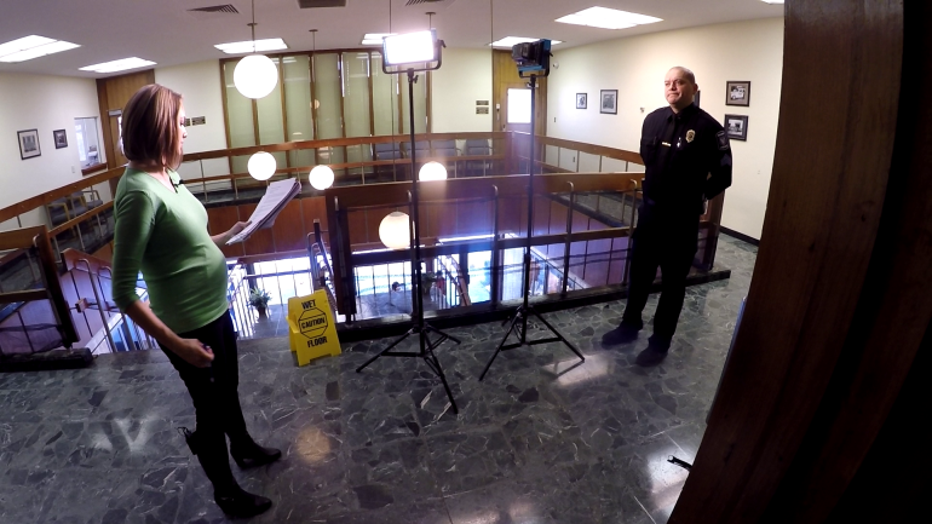
Malacara says Racine police did not find any wrongdoing in this case, while acknowledging that the department's officers have not had seizure training.
"That's something we probably could do a better job of training our officers in dealing with, recognizing those situations," Malacara said.
Malacara says there are no immediate plans to conduct seizure training because the winter schedule is already set, but says there should be opportunities "down the line."
"It’s an unfortunate situation in this incident," Malacara said. "I have to say that’s an isolated incident and I’ve been here 19 years -- this is the first time I’ve ever seen or done a story about this."
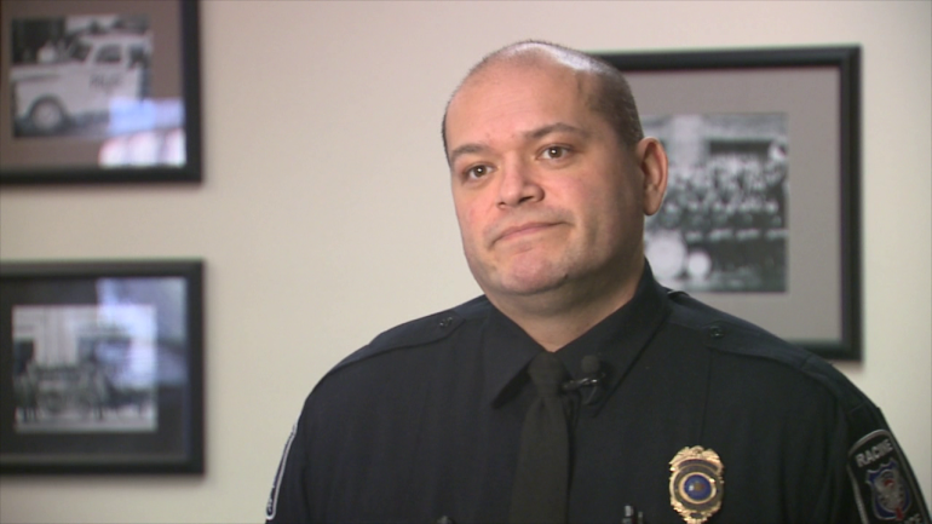
Malacara also points out that different forms of training can sometimes tell police conflicting things. For example, the blank look that could signal a seizure is used in other police training as a sign someone could attack.
"I've had someone who gave me that stare when I was in my squad car," Malacara said. "It ended up he shot at me. So in that situation with Officer Diederich, he didn't know what Mr. Pinkins was going to do, but he recognized those signs. In my situation, I didn't know what the other person was going to do. But I recognized that sign, and I'll never forget that stare. It's a tough situation."
Racine police say Diederich left the department last year for a different job. FOX6 tried to get in touch with Diederich, but he did not respond.
Malacara says Racine police decided to write up charging documents because of the "totality of the circumstances, taking account the disturbance that was caused, the injuries that were caused to Officer Diederich," and the difficulties officers say they had getting answers from the other man present at the scene.
However, once police write up the report, it's up to the Racine County District Attorney's Office to determine whether to move forward with the charges.
FOX6 had questions for the Racine County District Attorney's Office about the eventually-dismissed charges against Pinkins; the prosecution would have been required to prove that Pinkins had "intent" in the struggle with Diederich. No one from the D.A.'s Office returned FOX6's phone calls.
"I still have panic attacks," Tyran Pinkins said. "I have bad vision, nightmares. It's real."
Pinkins says he's moving forward by making changes, like going back to school.
"I just wanted better for myself," he said. "You know, I got children, I got family who needs to see better."
Throughout his interview, Pinkins said he wanted to see "justice." When FOX6 asked what justice would look like to him, Pinkins paused.
"You know," Pinkins said. "Justice would be seeing that no one has to go through it the way I did."

